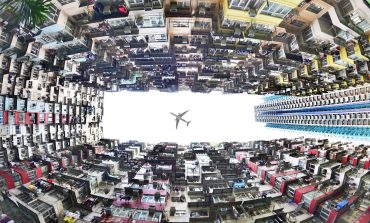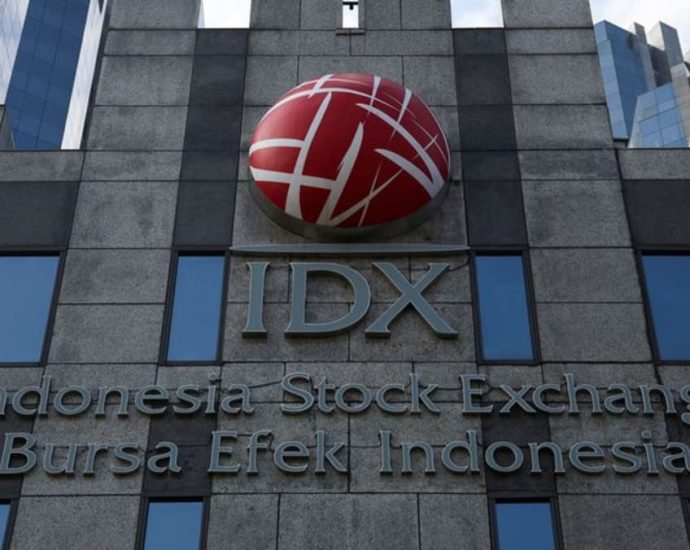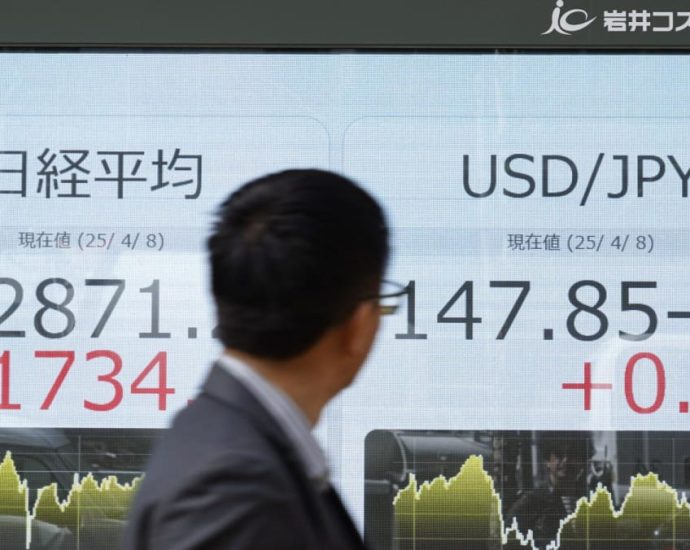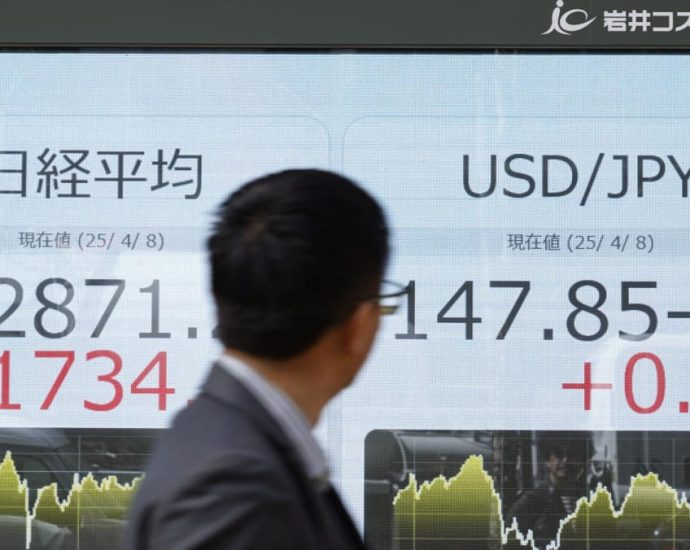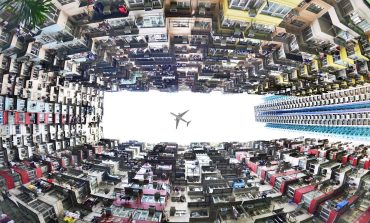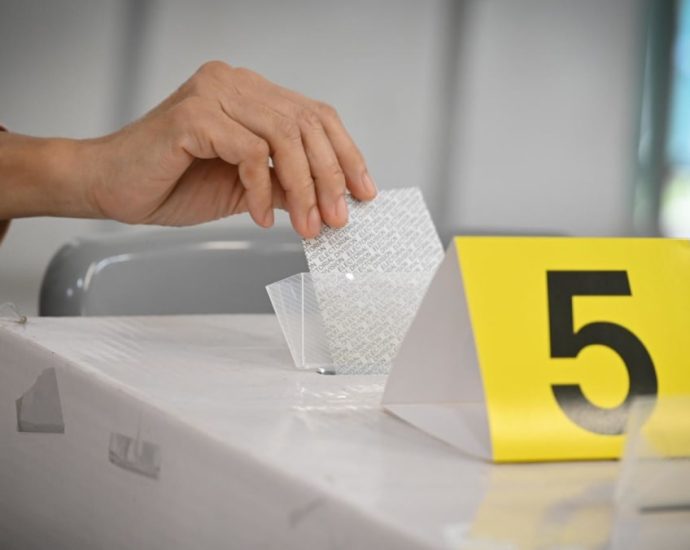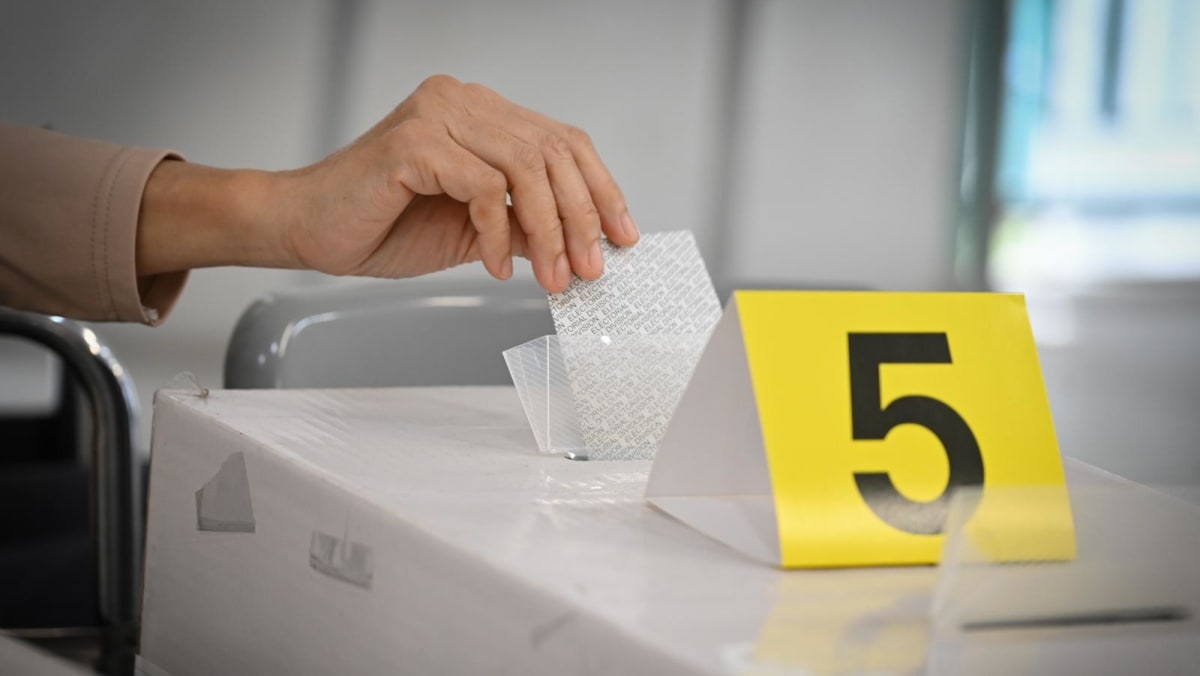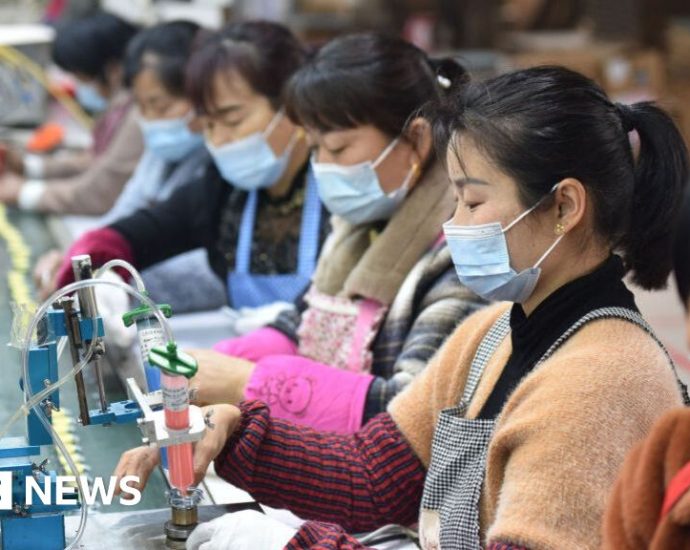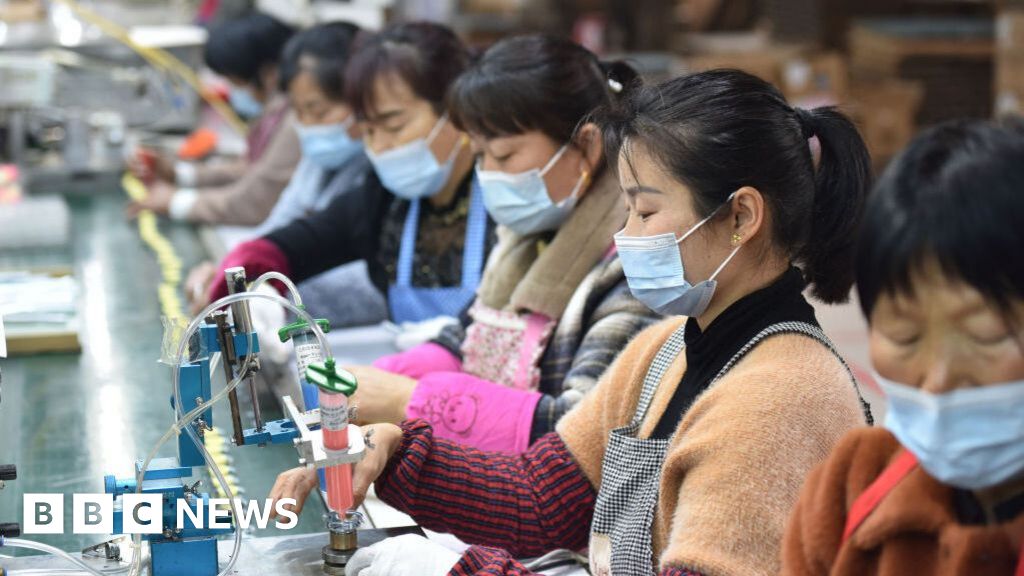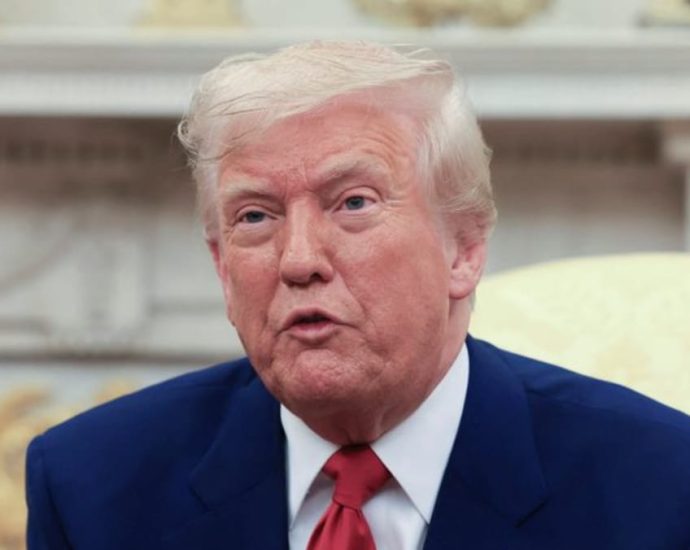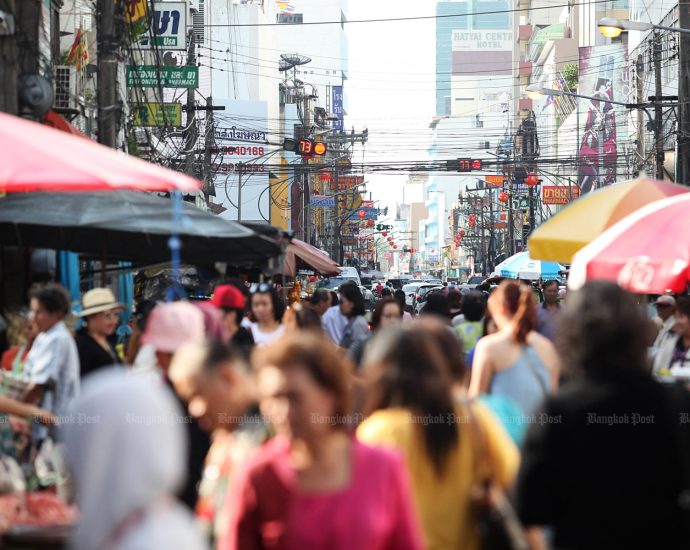Indonesia’s Prabowo asleep at the wheel on Trump tariffs – Asia Times
JAKARTA – One week since President Donald Trump’s “Liberation Day” tariffs threw the global economy into turmoil and Indonesia’s government seems to have been caught flat-footed.
Adopting the same conciliatory position as most of ASEAN, the country is looking for a tariff-easing deal. But, with domestic economic policymaking chaotic and the foreign ministry adrift, forming a coherent response may be difficult for Southeast Asia’s biggest economy.
Indonesian stocks dropped more than 9% today (April 8) as trading resumed for the first time since March 27 and recovering after a 30-minute halt. The rupiah fell as much as 1.8% versus the dollar in early trading, closing in on a record low, while bonds also slumped.
There seems no easy way for Indonesia to absorb its Trump-assigned 32% tariff. The apparel and footwear industries will both be hit hard. Nike and Adidas, between them, have about half their labor force stationed in Indonesia. The furniture industry, which exports about half its product to the US, will also likely be driven to the wall.
Comparatively, Indonesia has not taken the hardest direct hit. With a large domestic market, the country’s export-to-GDP ratio stood at 24.5% in 2023. That year, only 9.35% of its exports by value went to America.
Exports of commodities like coal, palm oil and metals go largely to China, Japan, India, and other Asian countries, which make up a large percentage of Indonesia’s total exports.
Compared to Vietnam – which is facing 46% tariffs, has an export-to-GDP ratio of 87.2%, and sent 27.8% of its export’s total value to the US in 2023 – Indonesia’s tariff crisis is less severe.
Still, the challenge should not be underestimated. A global recession, which seems increasingly likely, would depress Indonesia’s crucial commodity exports.
And while Indonesia is not as export-dependent as others, they do play a vital role in earning the dollars it needs to sustain its imports of crucial items, including fuel and food.
“Yes, Indo is less exposed to tariffs,” notes Siwage Dharma Negara, co-coordinator for the Indonesia Studies Program at ISEAS. “But its exports contribute to foreign exchange reserves, which will be depleted quickly. We need to anticipate more pressure on the rupiah. This, in turn, will have an adverse impact on its imports of critical inputs and raw materials.”
Facing this difficult situation, Indonesia has reacted like much of ASEAN by quickly looking for a deal. “We will also open negotiations with America. We will say: ‘We want a good relationship. We want a fair relationship. We want an equal relationship,’” President Prabowo Subianto told journalists April 7 in his first public comments on the matter.
It seems Indonesia is looking to coordinate with Malaysia or perhaps ASEAN writ large, with Prabowo discussing the matter with Prime Minister Anwar Ibrahim, who currently is the rotational chair of the bloc.
“Not retaliating is the overall strategy from ASEAN countries, hoping Trump will be willing to make exceptions,” explains Dewi Fortuna Anwar, co-founder of the Foreign Policy Community of Indonesia.
“Trump is committed to protect the US market, but like the Godfather he’ll likely be more generous to those willing to kiss the ring. As SEA is the epicenter of US-China rivalry, Trump will probably not want to push the region completely into the China orbit. But some kowtowing will be required.”
Trade negotiations could prove tough, though. Trump has signaled resolve to stick to the tariffs despite plunging stock markets and his goals seem quixotic, if not unreachable. Speaking to reporters recently, Trump said he would not strike any deal to cut tariffs unless it also eliminated the US trade deficit with that country.
Meanwhile, Indonesia’s chaotic governance may leave it struggling to deal with the extremely difficult task of managing both the domestic economic fallout and trade negotiations with the US administration.
Notably, Indonesia does not currently have an ambassador in Washington DC and has not had one for two years. Speaking off the record, senior civil servants talk of entrenched dysfunction at the foreign ministry.
Speaking with a now-retired veteran diplomat, this writer commented that Indonesia seemed to have been caught with its pants down on the tariff announcement. “If any pants all,” came the dry reply.
Part of the problem is that President Prabowo fancies himself an international statesman, spending roughly one-third of his first 100 days on marathon trips abroad, mostly to attend summits.
As foreign minister, instead of the veteran diplomat, Prabowo appointed his extremely inexperienced aide Sugiono – a move widely seen as meant to allow Prabowo to dictate foreign policy to a junior who is dependent on him.
The result has been disorganization internally and embarrassing botches externally. Most notably, Indonesia seemed so desperate for new deals with China that it briefly appeared to acknowledge China’s claims to Indonesian territorial waters soon after Prabowo’s inauguration. None of this augurs well for managing Trump.
As for domestic economic policy, Indonesia was starting to struggle economically well before the tariff announcement, in large part due to erratic policymaking.
Structural factors like weakening consumer spending and a rupiah hitting lows last seen during the pandemic have been exacerbated by fears about the government’s populist spending policies.
The government has slashed huge swathes of the state budget to channel money into a school meals program. And a new holding company for state-owned enterprises (SOEs) that lacks parliamentary scrutiny and reports to the president has sparked fears of a 1MDB like-scenario.
The result has been foreign capital flight at alarming rates. A market crash in mid-March saw trading briefly suspended on Indonesia’s stock exchange.
Rumors swirl that Finance Minister Sri Mulyani Indrawati, seen as key to the government’s bids to maintain credibility with markets, and Coordinating Minister for Economic Affairs Airlangga Hartarto attempted to resign but were turned down.
Both ministers have denied the claims. However, sources with purported knowledge of the requested resignations claim otherwise.
All this bodes ill for dealing with Trump. One way to deal with Trump’s tariffs would be to seek new markets for Indonesia’s exports. Signing a long-delayed trade deal with the European Union and deepening integration with ASEAN would be two quick wins.
Such moves would likely find some of their strongest support in the government from figures like Sri Mulyani and Airlangga – whose standings have apparently been weakened.
Another, perhaps likelier possibility, is that Indonesia will default to its usual highly protectionist instincts – even if this proves self-defeating.
Worries about cheap Chinese imports destroying local manufacturers were already ubiquitous before Trump’s tariff bomb. As tariff-hit Chinese businesses desperately seek markets outside the US, it seems like worries about this – and pressure to block imports – will grow.
Prabowo himself has fundamentally autarchic economic instincts. Coming into office, he declared food and fuel self-sufficiency as top policy priorities.
Speaking on economic issues at international summits, he has often displayed a Trumpian suspicion of trade, suggesting Indonesia is exploited by trade partners and made vulnerable to outside shocks. Trump’s tariffs could seem to Prabowo as confirmation of such views – and push him deeper toward dangerous notions of self-reliance.

